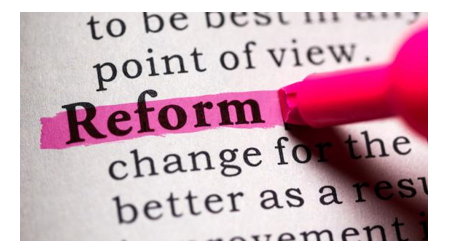INP-WealthPk
Ahmed Khan Malik
The Sindh government has started implementing governance reforms to increase provincial revenue. The Economic Reforms Unit (ERU) has designed the reforms, reports WealthPK.

Sindh boasts a host of potential economic and geographic advantages. However, the recent growth and social development trends indicate that this province is not tapping its full potential, a policy paper on the governance reforms says. It points out that a key constraint is the low levels of resource mobilization. The province’s own revenue collection remains relatively static vis-a-vis provincial GDP, despite some success after it started collecting GST on services post-devolution. The institutional mechanism of provincial tax collection before devolution was a carry-over from the British days. The provincial government has 15 taxes and other minor levies within its mandate, which are collected by three agencies: SRB, which is responsible for GST on services; Board of Revenue (BoR), which is responsible for collection of registration fee, stamp duty, capital value tax, agricultural income tax, and land revenue; and Excise, Taxation and Narcotics (ET&N) department, which is responsible for property tax, professional tax, infrastructure development cess, motor vehicle tax, excise duty, cotton fee, and entertainment duty.
Sharing the salient features of the policy with WealthPK, Waheed Abro, Additional Director ERU, said the policy brief highlights key challenges faced by the province in generating revenue, inefficiencies in the provincial tax structure, and difficulties faced by the private sector and individuals in complying with the provincial tax rules. He said the role of ERU has expanded and presently, it is one of the most important parts of the Sindh government in steering reform activities assisted by the donor partners. The overarching goal of the ERU is to coordinate with the provincial stakeholders and donor partners to streamline the public financial management reform process, and to enhance the public finance management to contribute to poverty reduction and improved service delivery.
Currently, the ERU is implementing public sector governance reforms under donor-funded projects/programs, i.e., the Project Management Unit of the World Bank-funded Sindh Public Sector Management Reform Project (SPSMRP), European Union’s Public Financial Management Support Program for Pakistan(PFM-II), World Bank-funded Government of Pakistan’s Program-for-Results (PforR), Public Financial Management and Accountability to Support Service Delivery and Pro-Poor Social Protection and Economic Sustainability Initiative. Abro said the ERU has a vibrant role in the institutional development of the Government of Sindh. As a result of numerous reform activities, new functional units were established in the Finance Department, such as the Debt Management Unit, Tax Reform Unit, and Internal Audit Unit. These units play a key role in assisting the line departments and tax collecting agencies for better governance. The ERU also supervises the Medium-Term Budgetary Framework (MTBF) and has great potential to work more on public sector governance reforms for further improvement in service delivery.
Credit: INP-WealthPk













